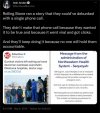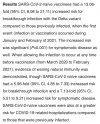Before I delve into the details, let me go over some basics so we're on the same page.
The risk of getting infected with Covid is variable.It varies with the
amount of exposure (i.e. how many people are running around in your neighborhood who have Covid) and the
length of exposure (roughly speaking, we're going to have twice the risk if we consider 2 months, compared to 1 month, if all else is equal).
Any study covers a specific place and a specific time, and to be able to generalize from it, we're going to want the result to be independent of the specific risk in that place at that time. That's why you are having a hard time finding some of these numbers: if you could find them, they probably wouldn't apply to your situation.
What we get is a comparison along the lines of "twice as effective" which we can then adapt to our situation.
Another important point is that to reap "the benefits of natural antibodies", we have to get Covid and survive. This is a much more dangerous process than getting vaccinated, both in terms of primary outcomes like death or permanent lung damage and in terms of side effects like myocarditis. If we're comparing "previously infected" with vaccinated persons, we need to understand that
to go from being uninfected and unvaccinated to being "previously infected" involves a big risk in and of itself.
The 2.34 odds are compared to what?
In the Kentucky study mentioned in
https://www.cdc.gov/media/releases/2021/s0806-vaccination-protection.html , they looked for people who had a Covid infection in 2020 and then got reinfected in May or June 2021, and found 246 overall. For each of these 246 people, they picked 2 more who had been infected in the same week and had the same age and sex, but didn't get reinfected in 2021; that's 492 people as controls. They then looked up whether the reinfected people had been vaccinated at the time they got reinfected, and looked up the same thing for their 2 matching control persons. This resulted in the following table:
| reinfected | not reinfected (controls) |
| not vaccinated | 179 | 284 |
| partially vaccinated | 17 | 39 |
| fully vaccinated | 50 | 169 |
If the vaccine had no effect, we'd expect approximately the same ratio of vaccinated to unvaccinated people in both columns. Among the controls, we have 169 vaccinated for 284 unvaccinated, that's 169/284=59.5%; so we'd expect59.5%*179=107 fully vaccinated people in the "reinfected column". But there were actually only 50. This means that being vaccinated (on top of having been infected in 2020) meant you were only half as likely to catch Covid-19 again in May or June 2021 in Kentucky.
(The odds ratio in the paper is slightly more than 107/50 for reasons I don't understand, but that probably have to do with accounting for the partially vaccinated people. And the accuracy is not that great on account of the small sample size; the actual odds ratio is probably somewhere between 1.5 and 3.)
So why does this generalize for other places and times with different infection risks? It does because the controls were carefully chosen so that the infection risk for the reinfected and the exposed was exactly the same, so it cancels out. The fact that we have fewer vaccinated reinfected wouldn't have been any different if there had been more or less people infected overall. We're seeing that the reinfections have proportionally more unvaccinated people, and therefore we conclude that the vaccination protects.
This is similar to the observation that there are far more unvaccinated people in the ICUs with Covid compared to vaccinated people than we'd expect, based on how many people have actually been vaccinated. You know that vaccination helps if vaccinated people don't have to go to the hospital as much.
I'm going to comment on the other study you mention in a separate post.


